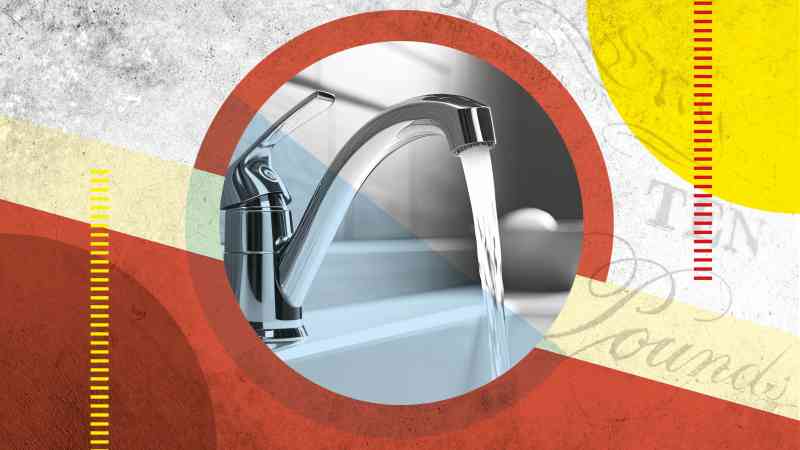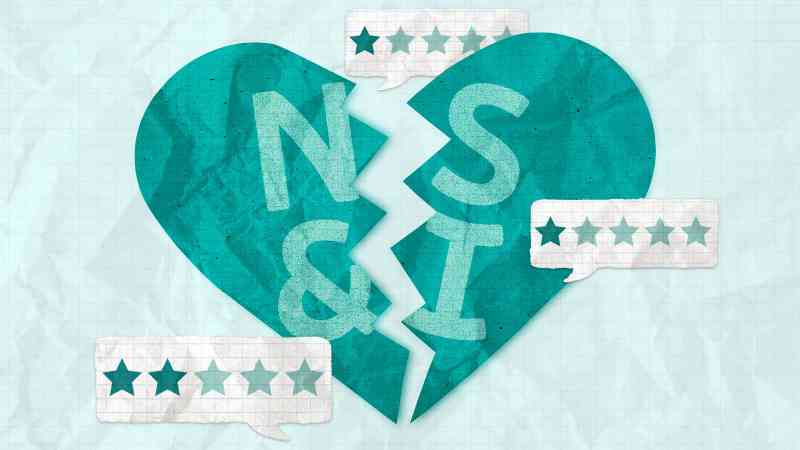Should you be able to boycott your water bill?
Water suppliers are in trouble — three were fined a total of £168 million this week by the regulator Ofwat over sewage spills, and one of them, Thames Water, is £15.2 billion in debt and has been placed in special measures. Some campaigners argue that customers should boycott the wastewater portion of their bill if suppliers cannot dispose of sewage safely, but failing to pay your water bill could land you in court. Should the rules change so customers can refuse to pay bills where service falls short?
Paul Kaufman, a founder of the campaign group Boycott Thames Water
Privatised water companies are legally required not to discharge sewage into our waterways, except as an emergency measure in cases of heavy and prolonged rainfall.Many are failing to uphold this and so why should customers pay for a service they don’t receive?
A growing number of people all over the country are refusing to pay the wastewater element of their bills if their water firm has a shocking environmental record. The amount you pay for wastewater services is specified in your bill and amounts to approximately half of it.
• Water suppliers and your rights
If a firm was hired to remove asbestos from a house and they dumped it in a local park, most people would agree it would be fair to withhold payment. But some water companies have been systematically fly-tipping noxious effluent into seas and rivers on a massive scale.
This is catastrophic for wildlife and interferes with the public’s enjoyment of the natural environment. Yet no matter how appallingly they may behave, you don’t have a choice over who supplies your water.
As suppliers have a monopoly over this vital resource it feels as if the only choice customers have is to not pay them. It is the job of the regulator Ofwat to take water companies to task for illegal spills and ensure financial probity.
It has fined Thames Water £104 million, Yorkshire Water £47 million and Northumbrian Water £17 million over sewage spills. Thames Water said its debts had risen to £15.2 billion in the year to March, which led Ofwat to place it into the equivalent of special measures and its credit rating was subsequently downgraded to “junk” by Moody’s.
Ofwat has not revoked Thames Water’s licence. Instead Thames Water will be made to develop a “suitable” turnaround plan, but this does not immediately help customers or the environment.
We should be able torefuse to pay the wastewater element of our bills until the madness of water privatisation is permanently reversed and stewardship is based on the interests of consumers and the environment, not greed and profit. Water firms guilty of polluting should be paying consumers compensation, not the other way around.
• Thames Water gets Ofwat monitor after credit rating downgrade
No
Mike Keil, the chief executive of the Consumer Council for Water, a public body that resolves complaints about water companies
Our water bills are the revenue that water companies need to fund the essential services we rely on, as well as the improvements to the environment we all want to see.
As customers we have a right to expect a good return for our money and that is where strong regulation is needed, but withholding bill payments is not the answer. Regulators exist to protect not only the environment but also consumers and should ensure money is returned to customers when companies fail to deliver.
It’s not hard to understand why public anger towards water companies has reached boiling point. Over the past few years we’ve witnessed a decline in trust in the industry amid reports of failures by some companies to protect the rivers and coastal waters we treasure.
Given that households cannot vote with their feet and switch suppliers, we understand why some people have felt compelled to boycott bill payments. But under the present rules that would be very unwise and our advice is to think twice before pulling the plug on your payments.
• Thames Water fined £104m in Ofwat crackdown on suppliers
You could very quickly face debt recovery from your water company. This could harm your credit rating, making it hard to get a loan, credit card or even a mobile phone contract.
Contrary to what has been stated on some boycott bill websites, a water company does not have to suspend or delay debt recovery just because a customer has raised a dispute with it, or brought a complaint to the Consumer Council for Water.
Protections exist for customers who have a genuine dispute about the accuracy of their bill, but this does not extend to cases where someone has chosen to withhold payment in protest.
This week Ofwat said it was fining three water companies a total of £168 million for failures relating to their wastewater treatment plants and sewage networks. Eight other companies remain under investigation.
It’s the strongest indication yet that regulators are now alive to the anger and frustration felt by many people over some companies’ poor environmental performance. Through tougher regulation, companies can and should be held to account — without customers having to damage their own credit rating and financial security.






